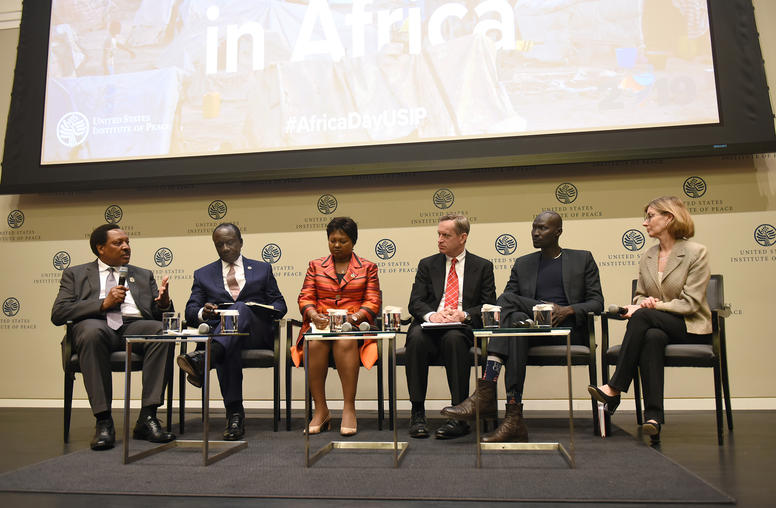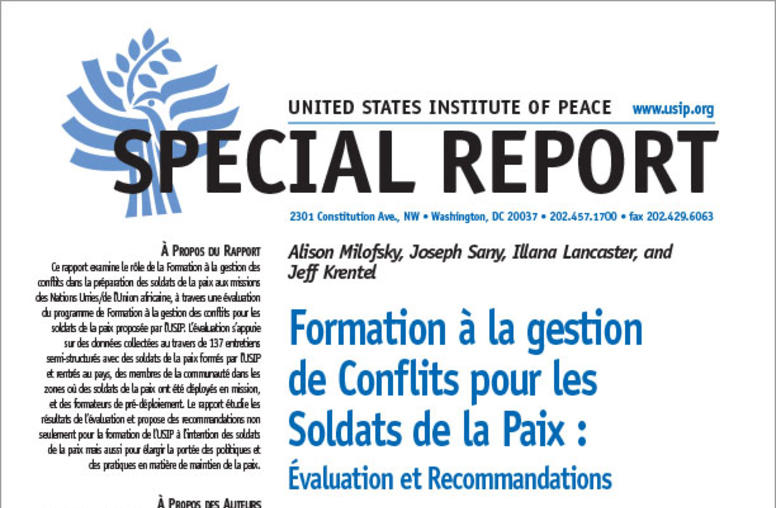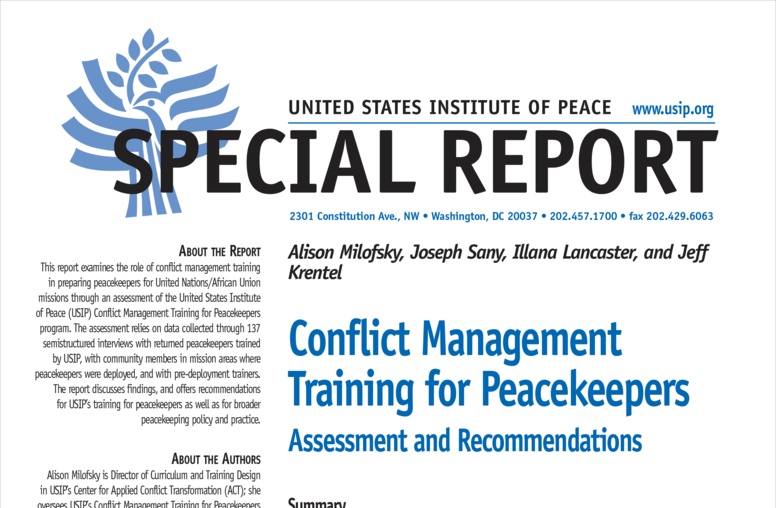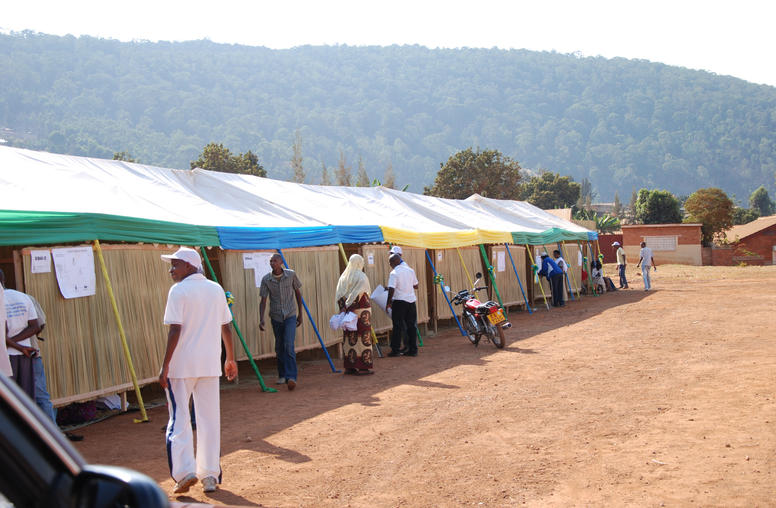Twenty years after the genocide, Rwanda is often seen as an example of reconciliation and social reintegration. Reminders of the systemic violence perpetrated by the government that began in 1992, in addition to the 100 days of genocide in 1994, are barely visible at the surface. But University of Rwanda lecturer Alice Karekezi notes that “the Rwandan people still carry the scars of war.” And it is still considered taboo to discuss ethnicity in public. But dialogue clubs have emerged in communities and schools for Rwandans to share grievances as a healing mechanism.
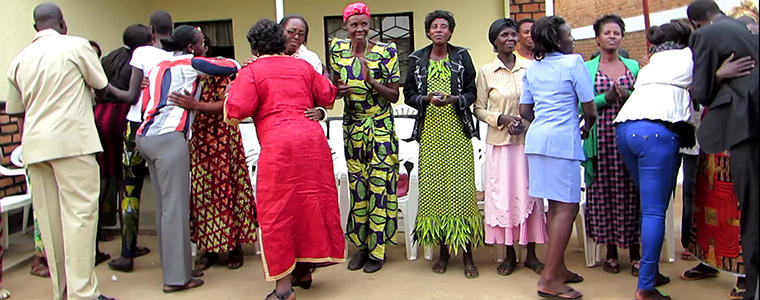
The U.S. Institute of Peace’s Center for Gender and Peacebuilding coordinated a pilot training program in the Rwandan capital Kigali June 5-10 for 13 South Sudanese representatives of civil society organizations. The program aims to strengthen their capacity to use intergroup dialogue to prevent violence and to establish a framework for reconciliation.
The training, led by Alison Milofsky, director of curriculum and training design in USIP’s Academy for International Conflict Management and Peacebuilding, specifically explores how conflict affects gender norms and how young men and women who have experienced years of violence can unlearn violent tendencies that have become instinctive.
To complement the dialogue sessions, USIP also organized a series of “lessons learned” sessions with Rwandan practitioners and academics. The objective was for South Sudanese participants who are experiencing ethnic violence during the current crisis in their country to hear stories from a community that has been working for two decades to heal from past ethnic brutality.
In the Bugesera District south of Kigali, South Sudanese participants and USIP staff met with a women’s dialogue group made up of survivors of sexual violence during the genocide. The rapes also resulted in the women becoming infected with HIV, the virus that causes AIDS.
Despite their experience with such brutality and the associated social stigma, the women said they were proud to contribute to their community and to their family’s income with work such as producing handicrafts and raising cattle, via a program that also includes facilitated dialogue. The initiative is managed by the Kigali- based non-governmental Institute of Research and Dialogue for Peace (IRDP). The organization oversees dialogue clubs in 19 of Rwanda’s 30 provinces.
The aim of the pilot women-only group in Bugesera is to determine the role that women can play in preventing violent conflict. “If women had stronger roles before the genocide, it would not have happened. We could have prevented our husbands from killing and set them on the right path,” says Claudine, a member of the club.
Bugesera was the worst-affected district during the genocide, with tens of thousands of Tutsi men, women and children massacred over the course of a few months. The club opens a space for women to discuss their stories and their pain as a way to rebuild what they lost. The group also aims for a broader effect by working out of a women’s center, where the members support women’s rights at the local and provincial levels.
As the dialogue program was wrapping up, the Global Summit to End Sexual Violence was getting underway in London, co-hosted by British Foreign Secretary William Hague and actress Angelina Jolie, the special envoy for the United Nations High Commissioner for Refugees and carried live online. In 2013, USIP hosted the first global Missing Peace Symposium with more than a dozen organizations to bring together practitioners, researchers, policymakers and activists to better understand the challenges and identify the gaps in this field.
In the five days of the USIP program in Rwanda, the Rwandan presenters said repeatedly that women have found their voice since the genocide and now are seen in their communities as agents of change. In subsequent dialogue sessions among South Sudanese participants, they questioned the effect of their own society’s gender norms during the current violent conflict.
They recognized the blending and breaking down of ascribed gender norms during conflict, and saw the role that both men and women can play in peaceful reconstruction and reconciliation. During one exercise, men and women were both determined to be protectors of their families and communities. Additionally, men felt the emotions and pains of war just as much as the women did, and could often shoulder caretaker roles in conflict and post-conflict settings, just as women so often do.
“There are many consequences we are yet to see from the South Sudanese conflict,” concluded Rabecca Moriku, a South Sudanese human rights advocate, at the end of the meeting with the Rwandan dialogue club. “Coming here to sit with you, sharing your experiences, and seeing how you stand up for each other, [it] gives us hope.”
The authors coordinated the program in Rwanda. Nicoletta Barbera is a senior program assistant and Danielle Robertson is a research assistant, both in USIP’s Center for Gender and Peacebuilding.
